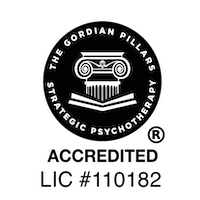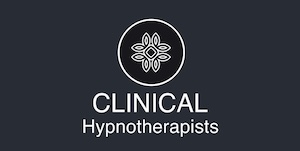Our Services

Anxiety & Stress Treatment

Procrastination Treatment
Change your “I’ll start tomorrow” into “today.” We do more than tackle your to-do list —we specialise in breaking the cycle of procrastination to achieve self-discipline, consistency and success.

Low Self Esteem & Imposter Syndrome Treatment

Addictions & Dependencies Treatment

Strategic Coaching

Insomnia Treatment
Hi, I'm Matthew
Your Local Strategic Psychotherapist and Clinical Hypnotherapist in Albury Wodonga
I work as a strategic psychotherapist, accredited coach, and clinical hypnotherapist.
Feeling anxious, stuck, or unsure about how to reach your goals? I get it.
I used to struggle with these exact same challenges, particularly my lived experience in the past with anxiety/stress, dependencies and procrastination.
But after receiving strategic tools, principles and approaches through my training, I was able to successfully apply them in my own life. Overcoming my own self-imposed limitations, and becoming who I was suppose to be.
Now I help others do the same.
At The Inward Process, we’ll work together to transform your choices and patterns today, so that you can live your life in a way that truly feels yours.






FREE 20 MINUTE CONSULT
We understand that taking the first step can feel daunting, which is why we’ve made it risk free for you. At The Inward Process, we offer a FREE 20-minute consult – by phone or Meets – so you can determine how this process works and decide if it’s right for you. There’s no pressure. No obligation. If at any point you feel during the call it’s not the right fit – we’ll simply stop. No questions asked and no cost to you. You’re reading this now, so why not click below and see where it takes you?
Real Success Stories
Hear From Our Happy Clients
FREE Individual Recordings
Directly to Your Phone
Good therapy teaches you to operate differently in the world. We give you a range of resources to help discover a new way of being
Discover What is Possible
Frequently Asked Questions
Not sure yet? Here are the answers to some common questions
Clinical hypnotherapy is the use of clinical hypnosis to address presenting issues and problems, in a therapeutic setting at the unconscious level.
Hypnosis itself is referred to as an “absorbed or inward, directed attention state”, or a state that appears more “trance-like”. A trance-like state can also mean “open eye trance”, like when you are driving and dancing, and you aren’t consciously thinking about it. Thus, you actually go naturally in and out of trance so many times in a day. You just don’t notice! Therefore, this idea that hypnosis is a zombie-like trance state (that may be portrayed on stage or in movies), is a myth.
Clinical hypnosis has also been likened to a state of “heightened awareness”. As well as can also mean an “increased susceptibility to suggestion”, where people are more willing to entertain new options/possibilities, and less attached to their own position.
Ultimately at The Inward Process, hypnosis is used as a vehicle/tool for delivering strategic psychotherapy/coaching (if you choose) that are tailored to your individual needs and desired goals.
In clinical hypnosis, the conscious mind if you will (the part of the mind that is responsible for thinking, analysing, and interpreting) takes more of a back seat, and it allows us to tap more directly to the unconscious mind (or the unconscious). By being able to bypass the critical, conscious mind and leveraging strategic psychotherapy/coaching in the process, it allows for a tailored therapeutic experience, that facilitates significant and lasting shifts in behaviour and thought processes. In quite often a relatively short period of time.
To explain further, there are certain patterns/processes, such as in procrastination, or a dependency for example, where the frontal lobe – the logical part of you that is responsible for thinking, analysing and interpreting things, already knows that you should stop the bad habit/dependency. Yet, in the end, you still end up turning, and doing the bad habit/dependency. Why? Because this is an unconscious pattern driven by emotion, not logic (read this sentence again). This is why strategic hypnosis is so effective, whilst traditional, dialectic, or conscious talk therapies have limited success in comparison. When you combine these approaches, which we offer, you get far better, effective outcomes as a result.
Everyone’s experience will be slightly different, and how effective hypnosis is, will largely come down to how open you are to the experience, what your expectations and beliefs of hypnosis are, how quickly you can take onboard/take action, and the skill level of the clinical hypnotherapist contributes.
What my clients and others say commonly, is that hypnosis is like the feeling of being relaxed – both mentally and physically. When in trance, it can be characterised by increased focus and concentration. Some have even likened it to “daydreaming”, or an altered state of consciousness. You aren’t actually quite asleep or unconscious when you are in “trance”. Some clients hear every single word, others kind of fade in and out of consciousness. You still remain aware of your surroundings, and you will be able to recall the experience afterwards. In short, hypnosis will likely be one of relaxation, though it will be unique to you.
Ultimately, there are so many unique experiences of hypnosis that it is challenging to exactly write a well-defined description of what hypnosis is like, but this is the general consensus. For anyone who says hypnosis is also the exact same for everyone, that is also a myth, because it ignores the individual variability and experiences of that person.
No, a person under hypnosis cannot be forced to do something against their will or against their moral or ethical beliefs. While in a hypnotic state, individuals are still in control of their actions and decisions. Always. The role of hypnosis is to facilitate positive changes aligned with the individual’s own goals.
Hypnosis is simply a tool, a fascinating and complex tool to me, and requires voluntary participation. Thus, you remain in control and can choose to come in and out of hypnosis at any time.
Hypnosis can be used for a whole host of reasons, including, and not limited for strategic coaching and psychotherapy purposes. Here are some of the lists that we offer at The Inward Process:
Anxiety/stress, Addictions/dependencies, low self-esteem, procrastination, pain management, insomnia, smoking, phobias, improved focus/concentration and more!
The myth that 10% of the population can’t be hypnotised, or “my mind is too strong to be hypnotised” is outdated. Traditional, older forms of hypnotherapy that were scripted, more forceful in their methods that told you what to do, made this so. In modern strategic hypnosis, I do not give you direct advice, only offering suggestions, insights and possibilities that you can cherry pick, deciding whether to take that onboard if it is useful, or you can dismiss it if you choose. It’s all up to you. In truth really, anyone can then be hypnotised, but it requires your active participation and willingness – if you decide.
Many people, unfortunately due to movies, and what is “stage hypnosis” that is used for entertainment purposes, do not see the validity, merit, and therapeutic value of hypnosis. This viewpoint ignores the extensive clinical research and application of hypnosis in treating a variety of psychological and medical disorders/issues.
I get asked this quite a lot and the short answer is. Yes! But please read on if you wish to have more information and be more informed. Numerous empirical studies, professional association bodies and renowned experts support this. When performed by a trained and qualified professional, hypnosis is absolutely safe, and is a naturally occurring state of mind. It is a non-invasive and drug free method.
Robust, empirical research dating way back, for example (Lynn et al., 1990), demonstrated through a meta-analysis (across 18 studies), that hypnosis was effective in reducing anxiety, and was particularly helpful when combined with other forms of psychological, talk-based therapy interventions. Another recent example, includes a comprehensive meta-analysis (Barnes et al., 2019), suggests hypnotherapy, indicates the effectiveness and benefits of hypnotherapy for addictions/dependencies, including smoking.
In a clinical sense, hypnosis is a tool that focuses on amplifying people’s strengths. The presupposition of hypnosis begins that the client has inward resources, capacities, skills, and abilities that are present but are not yet been utilised, abilities and skills that can be developed over time, and/or can be used in an effective deliberate manner to overcome issues and problems. Again, you cannot be “under the spell” or “mind control” of the clinical hypnotherapist, and you come out of trance at any time, easily and effortlessly.
Dr. David Spiegel, M.D., Associate Chair of Psychiatry & Behavioural Sciences at Stanford University: “Hypnosis is among the safest treatments we have in the field of psychology and medicine. It empowers patients to manage pain, stress, and anxiety, utilizing the brain’s intrinsic ability to heal and regulate the body.”
Dr. Michael Yapko, Ph.D., Clinical Psychologist and renowned Clinical Hypnosis Trainer: “Hypnosis, when practiced by a well-trained, ethical professional, offers a safe, non-invasive, and effective approach to addressing a wide array of clinical issues, firmly grounded in decades of research and clinical application.”
There is an exhausting list of world renowned experts including Dr Jeffrey Zeig, Bill O’Hanlon, Denisa Legac MD, Stephen R. Lankton, MSW, DAHB to name a few that state clinical hypnosis is safe and effective.
Organisations such as the International Strategic Psychotherapy Association (ISPA) and Hypnotherapy Council of Australia (HCA) and Australian Hypnotherapists Association (AHA), have all established guidelines and ethical standards for the practice of clinical hypnosis, emphasizing the importance of proper training and ethical practice to ensure patient safety.
In the United Kingdom, institutions, and regulatory bodies of the British Society of Clinical Hypnosis (BSCH) and the National Hypnotherapy Society (NHS), similarly provides professional accreditation and setting professional standards/guidelines.
Yes, strategic hypnotherapy can be highly effective in alleviating anxiety and stress. By addressing the root causes of these issues at the subconscious level, hypnotherapy can help individuals develop healthier coping mechanisms and experience a greater sense of calm and control.
Jay Haley, first termed “strategic psychotherapy”, which led to the strategic approach. He was highly regarded and influential in the development of strategic family therapy, and brief therapy models.
Key focuses on strategic psychotherapy are:
Solution-oriented: Strategic psychotherapy begins with defining clear outcomes for what the client wants to achieve. The focus remains on these outcomes throughout the session.
Focus on Patterns: There is a strong emphasis on underlying patterns that lead to the problem, throughout the interviewing and clinical hypnotherapy process. It prioritises identifying swift, practical solutions to a client’s presenting problem, rather than delving deeply into your whole life story and past experiences.
Directives & Tasks: Rather than just talk, therapists use specific tasks, directives and other interventions to change behaviour patterns and create shifts in the system.
Change Creates Change: The strategic approach posits that even small changes in behaviour can set off a cascade of positive shifts within the system as a whole.
- A 20 minute discovery session, followed by the completion of the client intake form.
- A strategic interview lasting about 30-35 minutes (the initial interview around 45-60 minutes to identify the client’s desired outcomes, strengths, resources, underlying patterns, processes and what is contributing to the presenting issue).
- A 15 minute hypnotic session.
- A 5-10 minute debrief, overview and moving forward.
Strategic psychotherapy is a therapeutic approach that helps individuals understand and manage their emotions, thoughts and behaviours. Through one-on-one sessions with a trained psychotherapist, clients can explore their concerns, gain insights, develop effective coping strategies and reclaim control. This is different from other forms of psychotherapy as it is focuses on the patterns, choices and perceptual filters that clients have developed throughout their life. In showing clients how to change these patterns and perceptual filters, the possibility of change becomes a reality.
Strategic coaching itself embodies a present, forward thinking process that is centred on a systematic, strategic approach. The coaching you experience at “The Inward Process”, is different to what you may initially think of as traditional coaching or consulting, such as in sports or in business, where they give you direct advice, prescribe rigid routines and specific directives to aim for. I am not here to tell you how to live your life, that you should get up at 4am, or what you should do exactly with your life. That’s not the type of coach I am. At The Inward Process, while I offer insights, suggestions and open up the door to potential possibilities, at the end of the day, you still know yourself better than anyone else does (obviously). This is your life, so how you want to live your life, what your goals and aspirations are, begins with the choices and decisions you make
At The Inward Process, strategic coaching has two primary aims:
1) Achieve your desired outcomes and results that you want, faster and more effectively than if you were doing all this on your own. To save you the time, the stumbling blocks, pain points and pitfalls that inevitably occur along the way.
2) While I am a powerful accountability partner, the second outcome of strategic coaching is to forge the patterns and processes that are innately within you, so that when our sessions have concluded, you are more determined in taking full responsibility, ownership and accountability for your own life.
The coaching process centres around powerful questioning, exploration and creating a meaningful partnership through collaborative dialogue that is deep, honest, authentic, and meaningful. So how does the coaching process firstly work?
The first session, is all about clarity, where we discuss the answers to your pre-coaching questionnaires you have filled, to understand where you are currently sitting in your life, and strategically craft, what are your expectations of coaching, and the Exact Goals you wish to accomplish.
We then begin the collaborative process to uncover the skills or experiential gaps – your unique obstacles (which may include self-doubt, uncertainty, fear, limiting beliefs, stories/narratives that you’ve held on to, which you have never even thought of questioning) to name a few.
And frankly, all the other garbage that can go on in our personal lives. It’s what we don’t know, and what we think we know that isn’t so, that ends up tripping us up. This is what a seasoned coach identifies. The coaching process isn’t always easy, sometimes I will challenge you, but the process is rewarding.
Once the strategic goal is set, and the gaps identified, we set out the action steps, tasking and any important materials for you to read that will be valuable – ensuring that you continue to learn, grow and expand, not just in the time that you work with me in the sessions.
The second part, and the crucial part of strategic coaching at The Inward Process is “high performance”, rather than hitting “peak performance”. How many times have you seen a pro in sport, “they are in the zone”, they have a brilliant game or a great season, but then the rest of their career is pretty mediocre? How many times has this occurred in your life? Where you have those “short bursts” of productivity, those moments where you absolutely smash it out, yet afterwards, you procrastinate, and your productivity is virtually useless? Or people you know of, who have a successful career, but they neglect their own health and the important relationships in their life? It is not about obtaining “peak performance”, through this black and white, all or nothing approach (i.e., dichotomous/global thinking), which so many no doubt you see in the social media and self-development industry preach, that leads to nothing but burnout, frustration, and poor results. The key, therefore, is high performance. Being able to execute in a consistent, sustainable fashion above your previous norm.
Yes, if you do not wish to have face to face sessions, then we offer online Telehealth services via Google Meets, or Zoom if requested.
All that is required from you, is to have a stable internet connection, a comfortable seated position and headphones for the clinical hypnosis, along with an environment where you won’t be interrupted by anything.
Yes, we offer in-person sessions at our locations in Albury Wodonga, as well as telehealth sessions for individuals who prefer the convenience of online therapy. Our goal is to make our services accessible and convenient for all.
For a strategic psychotherapy/strategic coaching session, the initial session lasts 90 minutes, and the following sessions last 60 minutes.
For strategic psychotherapy/clinical hypnotherapy sessions, you can expect to see changes within a few sessions, and typically, depending on how complex your presenting issues are and how well you engage in the process, you can expect to see significant results between 4-6 sessions.
See My Recent Blog Posts
What is Low Self-Esteem?
What is Low Self-Esteem? Low self-esteem is that persistent voice in your head telling you, “You’re not good enough,” “You’ll fail,” or “You don’t deserve this.” It’s not just a
What is Anxiety?
What is Anxiety? Anxiety is one of the most common yet misunderstood experiences in modern life. It can feel overwhelming—like a constant weight on your chest, a racing mind that
Breaking Free from Dependencies: A New Perspective
At The Inward Process, we approach what many call “addiction” from a different perspective. While society often labels it as an addiction or blames an “addictive personality,” we see it
Online or In-Person
First 20 minutes are free, with no obligation.
